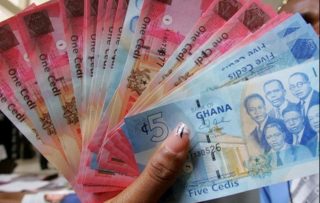On Sunday April 19, Ghana’s President Nana Akufo-Addo announced an end to a three-week partial coronavirus (COVID-19) lockdown in the country’s major cities, making it one of the first African countries to ease restrictions. This announcement was made during a televised address to the people.
According to the president, public gatherings are still banned, schools remain closed and social distancing measures continue. The borders will remain closed for a further two weeks to stop the virus from entering the country.
Akufo-Addo said the nation is not letting down its guard against the pandemic, as Ghana was taking action to protect its people from the virus but using an approach which suits the country.
“We shall be nimble and adapt as the situation changes. We will tailor our solutions to our unique social, economic and cultural conditions. There is no one-size-fits-all approach, but I pledge to you that the government will do whatever is required, in our particular circumstances, to safeguard the lives of our people, and keep our economy going,” said the president.
Following the president’s announcement, employees have resumed work, as the lift took effect from Monday April 20th.
However, Ghanaians have different reactions to the president’s decision. Economists are of the opinion that this move is the right step in preserving Ghana’s economy, while health personnel believe that maintaining social distancing could prove difficult and increase the spread of the virus.
William Nyarko the executive director of the Africa Center for International Law and Accountability, said the impact of the lockdown is significant as Ghana’s economy is largely informal, and people rely on daily wages. According to Nyarko, “an incremental approach would have been that he would lift the restrictions in phases like he did when he was doing a partial lockdown, so for example, he could have lifted the restrictions for two weeks and then would be monitoring to assess how things were going.”
More so, Ghana’s Secretary-General of the Trades Union Congress (TUC), Dr. Anthony Yaw Baah, has said the president’s decision to lift the partial lockdown is a good move which would help to save many jobs, as the lockdown had already led to the collapse of many businesses.
Dr. Patrick Asuming, an economist with the University of Ghana Business School, has lauded the decision of the President, stating that the president’s decision was an economic choice. “It is really an economic choice that they (government) have made and the choice is how long can we continue to sacrifice. Three weeks of lockdown is a hefty sacrifice and for people who live from hand to mouth who cannot survive,” he said.
However, health specialists are of a different opinion and consider lifting the lockdown a risky move. Dr. Prosper Akambong a public Health Specialist and a member of the National Democratic Congress’ (NDC) COVID-19 Technical Team, argued that President Nana Akufo-Addo’s decision to lift the partial lockdown was hasty and should have embarked on a mass testing exercise before lifting the lockdown.
“Lifting the lockdown is not a good idea because the government is only doing contact tracing and the cases are rising at the time that they are lifting this sanction. And these contact traces are only primary contacts and because of the delay in some of the results that are coming from the primary contacts, the primary contacts have also contacted primary contacts, tertiary contacts and quaternary contacts. So you just can’t test a few people and think that because your curve appears to be flattening you should lift the restrictions, I don’t think so,” he said.
In agreement with Dr. Akambong, Dr John Amuasi, a lecturer at the Global Health Department of the Kwame Nkrumah University of Science and Technology (KNUST), says the kind of data needed to determine the true infection rate and whether it was under control in Ghana is not available. Therefore, President Akufo-Addo’s decision could have been based on other factors.
Dr Amuasi said based on data and a clear knowledge of the epidemiology of the disease, the decision which he believes was not taken from a public health perspective, would rather lead to an increase in the number of cases.
As the streets return to life in Accra, Ghana’s government has said it will keep a clear focus on the situation and continue testing contacts of positive cases. Ghana will also be providing relief materials like food for the vulnerable in addition to free or subsidized electricity. It has also borrowed one billion dollars from the International Monetary Fund to help close the financing gap created by the pandemic.
So far, Ghana has traced 86,000 contacts and tested 68,591 of them and has seen more than 1,000 cases of coronavirus to date, although the death toll has been low, with only nine deaths. It is difficult to ascertain the impact of the president’s decision, however, in the coming weeks Ghanaians would be faced with the outcome.








